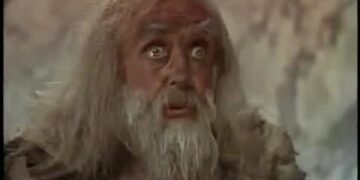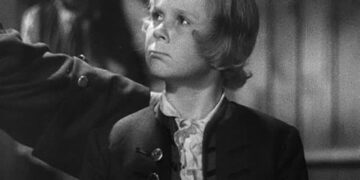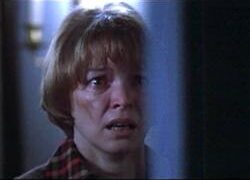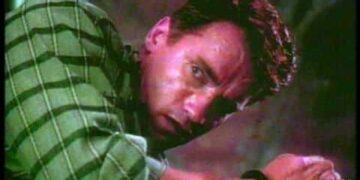Venture with me into a universe of vibrant hues, daring heroes, and spine-tingling adventures as we delve into the captivating world of Flash Gordon Conquers the Universe (1940).
A classic serial from the golden era of cinema, it presents an engrossing blend of science fiction, action, and dramatic storytelling that transcends time.
Whether you’re a devoted fan or discovering it for the first time, this in-depth exploration will provide unique insights into the characters, plot, and behind-the-scenes trivia. From the comic character summary to the movie summary, we’ll dig into every facet of this iconic masterpiece.
In addition, we’ll touch upon the suitability of the content for young audiences in our parent guide. Plus, we’ll take a stroll down memory lane, revisiting when and where this epic saga was filmed, and who’s who in the ensemble cast.
Insight into the Comic Character: Flash Gordon
Flash Gordon, with his blonde hair, muscular build, and unyielding bravery, is a comic character that has stood the test of time.
Born from the creative genius of artist Alex Raymond, Flash made his first appearance in the comic strip in 1934, captivating the hearts of readers with his daring exploits in the unknown cosmos.
A polo player and Yale graduate, Flash is rocketed into space with his companions to combat the evil Ming the Merciless.
Over the years, his character has evolved, but his courage, ingenuity, and tenacity remain the defining traits, making him a timeless hero in the realm of comics.
In the 1940 movie adaptation, Flash Gordon Conquers the Universe, actors Buster Crabbe’s portrayal of Flash brought the comic character to life, infusing him with an infectious energy and charisma that still resonates with audiences today.
Movie Summary: Flash Gordon Conquers the Universe
Flash Gordon Conquers the Universe is a riveting narrative that takes the audience on a thrilling journey through space. The Earth is under the threat of a deadly plague, and our hero, Flash Gordon, is tasked with finding an antidote on the planet Mongo.
The twelve-chapter serial is filled with epic battles, treacherous villains, and breathtaking landscapes that leave viewers on the edge of their seats.
Flash, accompanied by Dale Arden and Dr. Zarkov, must outsmart Ming the Merciless, who’s behind the plague and plans to conquer the universe.
The story unfolds with gripping suspense and compelling character dynamics, culminating in a climactic showdown that solidifies Flash Gordon’s status as a universal savior.
Parent Guide: Is Flash Gordon Conquers the Universe Appropriate for Kids?
As a parent, you might wonder if Flash Gordon Conquers the Universe is suitable for your children.
The film, although filled with science fiction adventures and battles, is generally considered appropriate for kids. It’s devoid of explicit content, and the violence showcased is stylized and non-graphic.
However, the film does portray perilous situations and conflicts that might be intense for very young viewers. As such, it’s recommended for children aged seven and above, with parental guidance advised for first-time viewers.
The movie can also serve as a great conversation starter about good, evil, bravery, and friendship. It provides an opportunity to discuss these themes with your kids, fostering their understanding and empathy.
When and Where: Timeline and Film Locations of Flash Gordon Conquers the Universe
Flash Gordon Conquers the Universe was filmed during the period of August to October in 1939 and released in April 1940. The 12-chapter serial, each running for about 20 minutes, was shot primarily at Universal Pictures studios.
The production design and special effects, though rudimentary by today’s standards, were innovative for the time, bringing the alien landscapes of Mongo and Arboria to life.
The imaginative set pieces, coupled with clever cinematography, created a convincing backdrop for the interplanetary exploits of Flash Gordon and his companions.
Who’s Who: Main Characters in Flash Gordon Conquers the Universe
In Flash Gordon Conquers the Universe, a diverse cast of characters adds depth and intrigue to the story. At the forefront is Flash Gordon (Buster Crabbe), a courageous hero dedicated to saving Earth from the evil plots of Ming the Merciless (Charles Middleton).
Accompanying Flash in his mission are Dale Arden (Carol Hughes), a smart and resourceful woman, and Dr. Zarkov (Frank Shannon), a brilliant scientist and loyal friend. These three form the core of the narrative, their bonds tested and strengthened as they confront perilous challenges together.
Supporting characters, like Prince Barin (Roland Drew) and Princess Aura (Shirley Deane), further enrich the story, each playing crucial roles in the struggle against Ming. The intricate web of relationships and alliances in the film adds layers of complexity to the narrative.
Memorable Quotes from Flash Gordon Conquers the Universe
Flash Gordon Conquers the Universe is filled with memorable quotes that encapsulate the spirit of the film.
Lines like Flash Gordon’s determined declaration, “We’re going back and put an end to Ming’s aggression!” or Ming’s ominous threat, “I will conquer the sea, the air, the Earth, the Universe!” resonate with viewers, reinforcing the film’s themes of courage, resilience, and the fight against evil.
Other notable quotes include Dr. Zarkov’s optimistic affirmation, “With our new source of power, we can defy any force!” and Dale Arden’s heartfelt plea, “Flash, please be careful!”
These lines, rich with emotion and significance, contribute to the film’s enduring appeal.
The Soundtrack by Bernard B. Brown: A Critical Review
Bernard B. Brown’s soundtrack for Flash Gordon Conquers the Universe is a key element that drives the narrative. The score, characterized by its bold orchestral arrangements and dramatic motifs, amplifies the action, suspense, and emotional moments in the film.
Brown’s composition skillfully underscores the film’s shifting moods, from the ominous tones that accompany Ming’s evil schemes to the triumphant fanfare heralding Flash’s victories.
The soundtrack’s ability to heighten the film’s sense of adventure and danger is a testament to Brown’s musical genius.
Although the soundtrack might seem antiquated by today’s standards, its influence on the genre of science fiction and action films cannot be overstated. It set the foundation for the epic scores that have become synonymous with these genres.
Curiosities and Lesser-Known Facts about Flash Gordon Conquers the Universe
There’s more to Flash Gordon Conquers the Universe than meets the eye. Did you know, for instance, that the film reused footage from earlier Flash Gordon serials to save on production costs? Or that Buster Crabbe, who played Flash, was an Olympic gold medalist in swimming?
Another fascinating fact is that Charles Middleton, who portrayed the villain Ming, was known for his roles in Westerns before transitioning to science fiction.
These and more intriguing tidbits shed light on the creative and practical decisions that shaped the film, making for an interesting deep dive into its production history.
Tips for Cosplaying Characters from Flash Gordon Conquers the Universe
Cosplaying characters from Flash Gordon Conquers the Universe provides a fun way to celebrate the film. Whether you’re dressing as Flash, Dale, or Ming, it’s all about capturing the essence of the characters.
Start with the basics: Flash’s iconic red and blue outfit, Dale’s elegant gowns, or Ming’s extravagant robes. Add accessories like Flash’s ray gun, Dale’s jeweled headbands, or Ming’s menacing helmet to complete the look.
Remember, the key to a successful cosplay is not just the costume but also the attitude. Embody the character’s personality, be it Flash’s bravery, Dale’s resilience, or Ming’s ruthlessness, to truly bring your cosplay to life.
Dressing like Flash Gordon: A Style Guide
Want to emulate Flash Gordon‘s style? Here’s a quick guide to help you out. The hero’s outfit usually consists of a fitted red and blue jumpsuit, coupled with a matching cap. Don’t forget the gold lightning bolt emblem, a signature feature of Flash’s attire.
Add a pair of brown leather boots and gloves to complete the look. And of course, no Flash Gordon ensemble would be complete without his trusty ray gun. While the outfit is simple, the confidence and courage Flash exudes make it truly stand out.
Alex Raymond: The Creator of Flash Gordon
The world of Flash Gordon sprang from the fertile imagination of Alex Raymond, a visionary artist and writer. Born in 1909, Raymond began his career as a cartoonist before creating Flash Gordon in 1934.
Raymond’s distinctive art style, featuring detailed illustrations and dynamic compositions, set Flash Gordon apart from other comics of the time.
His storytelling prowess, combined with his artistic skills, catapulted Flash Gordon to popularity, making it one of the most influential comics of the 20th century.
Beyond Flash Gordon, Raymond also created other popular comic strips like Rip Kirby and Jungle Jim, further cementing his legacy in the world of comics.
Understanding the Ending of Flash Gordon Conquers the Universe
The ending of Flash Gordon Conquers the Universe is a triumphant conclusion to the thrilling saga. After a series of epic battles, Flash and his companions successfully thwart Ming’s plans, saving the Earth from the deadly plague.
In the final chapter, “Doom of the Dictator,” Flash confronts Ming in a climactic showdown, resulting in Ming’s demise. With the universe safe from tyranny, our heroes return to Earth, bringing the antidote for the plague.
The ending, marked by victory and relief, reinforces the themes of bravery, unity, and righteousness that permeate the film.
Looking Ahead: Remakes, Sequels, and Spin-offs of Flash Gordon Conquers the Universe
Flash Gordon Conquers the Universe’s enduring popularity has inspired numerous remakes, sequels, and spin-offs over the decades.
From the campy 1980 film starring Sam J. Jones to the animated series Flash Gordon (1979-1982), these adaptations each offer a unique take on the original narrative.
The most recent attempt to revive the franchise is a planned animated film by Taika Waititi, showcasing the continued appeal of Flash Gordon. Each iteration, while varied in style and interpretation, pays homage to the original, underscoring its lasting influence in pop culture.
The Works of Ford Beebe and Ray Taylor: Beyond Flash Gordon Conquers the Universe
Ford Beebe and Ray Taylor, the directors of Flash Gordon Conquers the Universe, have an impressive body of work beyond this film.
Known for their contributions to the serial genre, they’ve directed numerous action-adventure films that have captivated audiences.
Ford Beebe is known for his work on films like The Green Hornet and Bomba the Jungle Boy, while Ray Taylor directed classics like The Phantom of the Air and The Adventures of Frank Merriwell.
Their combined experience and creativity brought Flash Gordon Conquers the Universe to life, marking a high point in their respective careers.
Similar Media to Flash Gordon Conquers the Universe: Recommendations for Fans
If you enjoyed Flash Gordon Conquers the Universe, here are some recommendations for similar media. Films like Buck Rogers (1939), The Phantom (1943), and The Green Hornet (1940) share the same serial format and adventure themes.
In terms of comics, titles like Buck Rogers, Prince Valiant, and The Phantom offer thrilling narratives set in fantastical worlds.
These films and comics, much like Flash Gordon Conquers the Universe, provide a delightful mix of action, suspense, and imaginative storytelling.
Exploring Other Works by Alex Raymond
Beyond Flash Gordon, Alex Raymond has created a wealth of fascinating comics worth exploring.
His other notable works include Rip Kirby, a detective comic strip featuring a sophisticated and intellectual hero. Jungle Jim, another creation of Raymond’s, offers exciting jungle adventures.
Raymond’s art in these comics is as captivating as in Flash Gordon, marked by his intricate detailing and dynamic compositions. Whether you’re a fan of detective stories or jungle adventures, Raymond’s other works provide captivating narratives and visually stunning art.
Book Club Questions for Flash Gordon Conquers the Universe
If you’re planning to discuss Flash Gordon Conquers the Universe in your book club, here are some questions to consider. How does the film compare to the original comic strip? What themes stand out in the narrative? How do the characters evolve over the course of the film?
Discuss the film’s impact on the science fiction genre. What elements of the film feel dated, and which ones hold up? How does the film’s production history influence your understanding and appreciation of it?
Video Games Inspired by Flash Gordon Conquers the Universe
Flash Gordon Conquers the Universe has also left its mark in the world of video games.
Games like “Flash Gordon: The Siege of Mingo City” and “Flash Gordon: Savior of the Universe” allow players to step into the shoes of Flash, embarking on thrilling quests to save the universe.
These games capture the essence of the film, featuring epic battles, intriguing puzzles, and immersive environments. Whether you’re a fan of the film or a gamer seeking adventure, these Flash Gordon video games offer a fun and exciting experience.
Travel Guide: Visiting the Filming Locations of Flash Gordon Conquers the Universe
While Flash Gordon Conquers the Universe was primarily filmed in a studio, you can still visit Universal Pictures in Hollywood, where the magic was created. Take a studio tour to learn about the film’s production history and see the soundstages where the film was shot.
For a broader experience, explore the Hollywood Museum, which houses a vast collection of film memorabilia, including items from Flash Gordon. Whether you’re a film enthusiast or a Flash Gordon fan, these locations offer a fascinating glimpse into Hollywood’s golden age.
Conclusion: The Lasting Impact of Flash Gordon Conquers the Universe
Flash Gordon Conquers the Universe stands as a testament to the enduring appeal of classic science fiction.
From its captivating narrative and memorable characters to its imaginative production design and influential soundtrack, the film has left an indelible mark on pop culture.
Its impact extends beyond the film and comic industry, influencing video games, fashion, and even inspiring real-life scientists.
While the film may seem dated to modern audiences, its timeless themes and enduring charm continue to resonate, ensuring Flash Gordon’s place in the annals of cinematic history.













